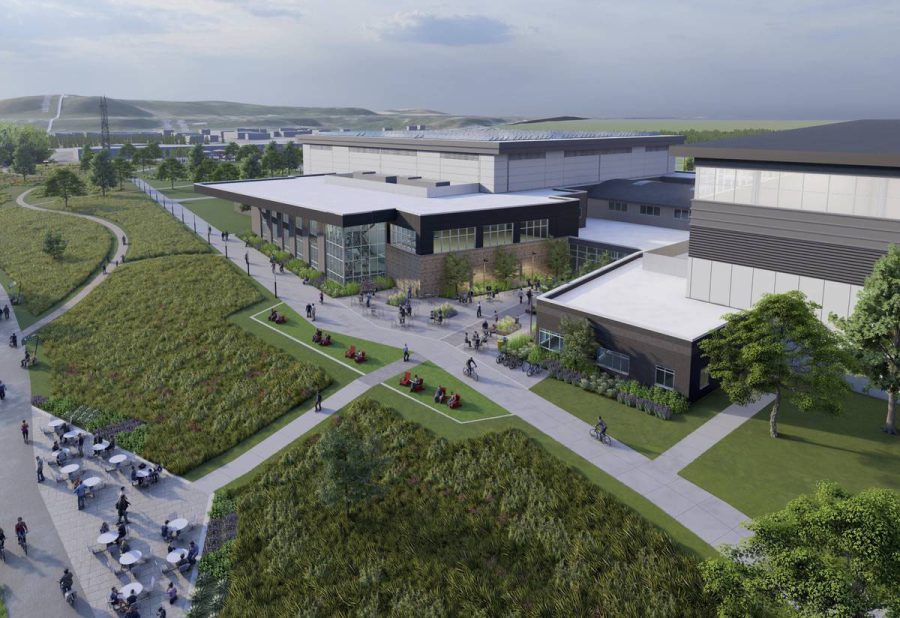Sonnentag Complex receives 12 million in funding for sustainability
Sonnentag Complex is planned to be “Truly Sustainable”
More stories from Winter Heffernan
Photo by SUBMITTED
The Sonnentag Complex, the new sports, events and community complex starting construction this year, just received 12 million dollars in additional funding. This funding was given to increase the project’s sustainability and safety.
Maddie Loeffler, the student sustainability representative, said that this funding came from several different sources including the City of Eau Claire, the Pablo Center, Xcel Energy and the Student Senate in conjunction with the Student Office of Sustainability.
She said that the Pablo Foundation, a local organization, is also providing money through a 5 million dollar grant, and a low-interest loan that will be paid off with the money that will be saved through energy efficiency.
“It takes a large up-front investment to ensure a large facility like this is sustainable. This requires leaders who are not only committed to sustainability but willing to follow through on that commitment,” Loeffler said.
Some of the planned applications, according to the University of Wisconsin-Eau Claire news webpage, are reduced water usage, electric vehicle and bicycle parking, a geothermal heating system, a program to provide all the power from a solar plant and much more.
The solar plant that will be providing power to the Sonnentag complex is owned by Xcel Energy. According to downtowneauclaire.org, Xcel Energy plans on providing 100% carbon-free energy by 2050, which makes it the first major utility company in the US to set that ambition.
“Over time, this investment will not only pay off in lowering the university and city’s carbon footprint, but it will also result in significant financial savings over time from the use of renewable energy,” Loeffler said.
The Sonnentag building project will also be pursuing LEED certification. According to usgbc.org, LEED certification is the most popular green building rating system in the world. It provides a framework to rate a wide array of building projects.
In addition to LEED certification, Sonnentag will also be following WELL health-safety protocol as well. According to wellcertified.com, the WELL certification is a roadmap for making sure spaces promote health and safety.
“Through my role, I’ve been able to push for bold and ambitious sustainability features in this building, as well as the new science building,” Loeffler said. “I collaborated with President Way to solidify the student body’s financial support of LEED and Well HSR.”
Many building projects related to the university have been completed in the past decade. Including Centennial Hall, The Pablo Center and the Flesch Family Welcome Center. These building programs continue as the creation of the Health and Science Building begins.
In a video about the sustainability of the Sonnentag project, Dr. James Boulter, a professor who teaches public health and environmental studies, said that of all the building programs in the past decade, the Sonnentag facility is the first of these that is truly sustainable.
“Usually we see sustainability as an afterthought,” Loeffler said. “I am impressed with the ways in which sustainability has been woven through the entire process with the Sonnentag Complex.”
Heffernan can be reached at [email protected].

